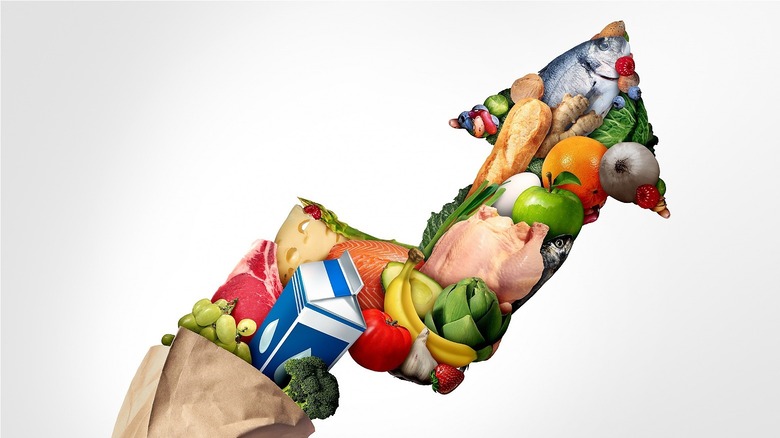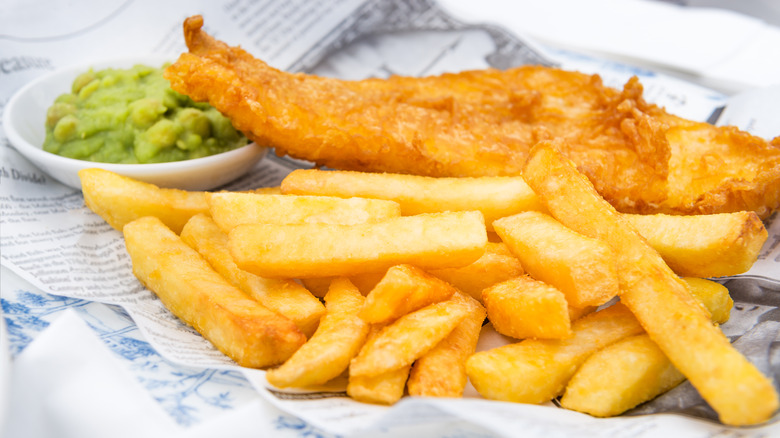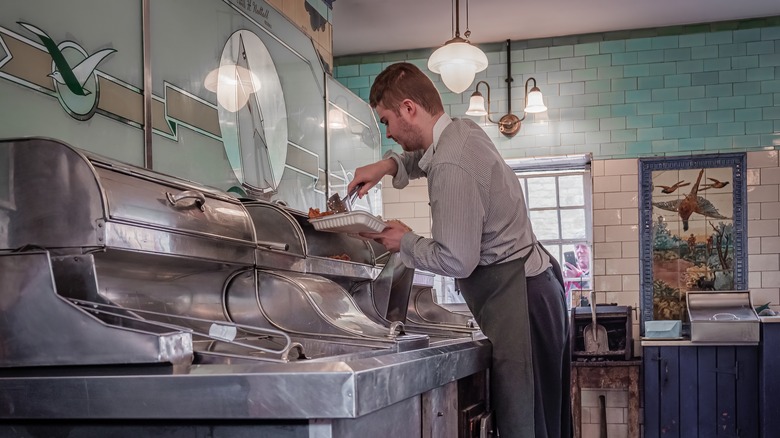How Inflation Has Affected A Classic British Takeout Meal
Fish and chips have occupied the heart and soul of Britain for over a century and a half. It was seen as one of the reasons the U.K. triumphed over Germany during the First World War, and it was reported that the British government had worked hard to ensure that fish and chips were not rationed during the Second World War, per the BBC. One half of this dynamic meal duo even made its way into the English lexicon; for a long time, the expression "cheap as chips" was a most British way to describe something as being very inexpensive. (For clarity's sake, "chips" in the U.K. are called "fries" in the U.S., per the BBC, and to the Brits, chips are called "crisps.")
And while fish and chips continue to be one of Britain's favorite takeout dinners and a staple meal for the country's working-class, inflation and a squeeze in supplies triggered by the war between Russia and Ukraine are seeing to it that the dish could well become a memory for many of those who enjoy it.
The Russia-Ukraine War is hurting Britain's fish and chip shops
While Britain is home to an estimated 10,000 fish and chip shops, The New York Times now predicts that it could lose as much as 30% – or about 3,000 shops across the country, thanks to rising costs related to both post-COVID inflation as well as the war.
Fish and chip shops need four fundamental ingredients with which to do business: flour for the batter, cod, potatoes as well as cooking oil. From there, they also need energy, and plenty of it, in order to power their deep fryers. Thanks to the war, electricity bills are soaring, cod is scarce since North Sea supplies cannot be purchased from Russian fishermen, sunflower oil prices have risen, and potatoes are expected to cost more too, thanks to rising fertilizer prices. The president of the National Federation of Fish Friers, Andrew Crook, says: "My industry is directly affected by the Ukraine issue because all our four main ingredients are directly affected, and we use a lot of them."
Fish and chip shop owners are having to close
The economics of running a fish and chip shop today can be staggering. National Federation of Fish Friers president Andrew Crook told the newspaper i, "There's never been a lot of profit in each meal. We're running at a tight margin, but we sell a lot of them. You sell enough, you make a living." So inflation can spell demise. Peter Weegram, who used to own a fish and chip shop, closed his doors after 25 years in the business because the rising costs meant he would have to hike his prices from about $7.28 per order to roughly $11.70. "I'm climbing up the walls now — I've never been unemployed in my life," the former chip shop owner told The New York Times.
Another chip shop owner, Nicola Atkinson, says she has had to raise prices four times since the beginning of 2021, just to keep up. "How do you keep explaining that to customers? People don't have the disposable income, so what are they going to do?" Atkinson said. The loss of a "chippie" means more than having one less takeout place to get food from. According to Crook "It's bit like being behind a bar. I've got customers that just come in for the banter and, for some of the older people, we might be the only people they speak to all day. It's something special, it's part of the culture of the nation."


